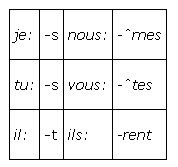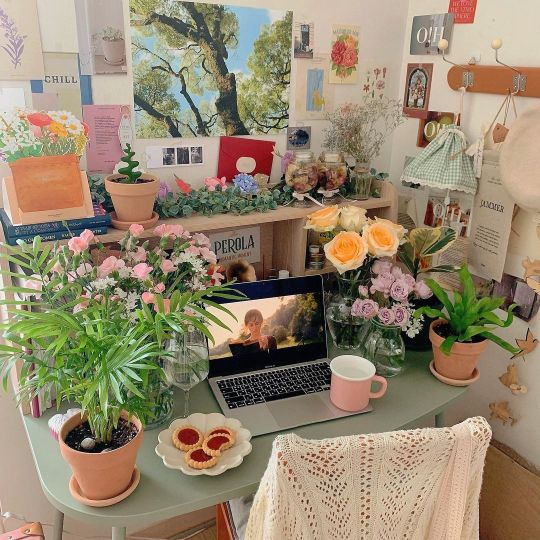Text
Clean out your phone and social media feeds. Deleted old photos, contacts, apps and people that no longer resonate or inspire you. End of the year digital purification.
24K notes
·
View notes
Text
日本語 words with 食
食べ物 (たべもの) food
食べる (たべる) to eat
食品 (しょくひん) food products
食中毒 (しょくちゅうどく) food poisoning
食欲 (しょくよく) appetite
夜食 (やしょく) midnight snack
夕食 (ゆうしょく) dinner
食卓 (しょくたく) dinner table
食堂 (しょくとう) cafeteria
187 notes
·
View notes
Text
officially learning swedish!!!! nu kör vi svenska!! :)))
#ctrl-alt-aesthetic#ctrl-alt-languages#swedish#swedish language#svenska#swedish langblr#sweden#polyglot#studyspo#language#langblr#language learning#language blog
7 notes
·
View notes
Text
learning urdu: basic grammar + verbs
some quick pronounciation tips:
L’s ( ل ) are typically pronounced as an “rl” sound when they are in the middle of a word
Hai ( ہے ) is pronounced like “hey” and not “hi”
A’s ( ا ) are pronounced as “uh” regardless of where they are in the word, unless the letter is ( آ ), and it would be pronounced as a long “ah” ( آ is pretty much always used at the beginning of a word)

basic grammar/conjugations:
in urdu, infinitive (non-conjugated) verbs always carry the verb ending نا (na). when you are changing the tense of a verb or are asking a question, you would drop the نا (na) ending and replace it with the correct verb ending.
here are some basic verbs to start off:
چلنا (chalna) — to walk
رکنا (rukna) — to stop
کھانا (khana) — to eat
پینا (peena) — to drink
All such verbs in their basic forms function to mean/represent an act of doing, happening, or being in a state. This is the most basic definition of a verb in Urdu.
the following are the most basic verb tenses- present, past, and future. for the present tense, you drop the نا (na) ending in a verb and add تا ہے (ta hai) or تی ہے (ti hai), which are the masculine and feminine verb endings (urdu is a gendered language, much like french or spanish), respectively. you complete the same steps with the past and future tenses, which are below. using the verbs mentioned above as examples, see how the verbs are conjugated (i will use masculine verbs throughout the post, but you can use feminine ending using the same steps):
***IMPORTANT NOTE/EDIT: the conjugated urdu script is not properly connected in this post because I do not personally have access to an urdu keyboard (i am working on it tho), so please make sure that the conjugations are always connected to the root of the word when writing in urdu. coincidentally, the separation actually makes the conjugations more clear but plewse refer to the examples in the very beginning of this post to see what the conjugations should actually look like when properly written (i copy/pasted the script for those so that is in fact the correct way)!***
Present Simple Tense: تا ہے/تی ہے (ta hai) / (ti hai)
چل تا ہے (chalta hai) — is going
رک تا ہے (rukta hai) — is stopping
کھا تا ہے (khata hai) — is eating
پی تا ہے (peeta hai) — is drinking
Summary: for basic present tense, drop the نا (na) infinitive and add تا ہے/تی ہے (ta hai) / (ti hai).
Past Simple Tense: یا/یی (ya)/(yi) or یا تھا/یی تھی (ya tha) / (yi thi)
چل یا (chalya) — walked
رک یا (rukya) — stopped
کھا یا (khaya) — ate
پی یا تھا (peeya tha) — drank
Summary: for basic past tense, drop the نا (na) infinitive and add either یا/یی (ya)/(yi) or یا تھا/یی تھی (ya tha) / (yi thi)
Future Simple Tense: گا/گی (ga) / (gi)
چل گا (chalga) — will walk
رک گا (rukga) — will stop
کھا گا (khaga) — will eat
پی گا (peega) — will drink
Summary: for basic future tense, drop the نا (na) infinitive and add گا/گی (ga) / (gi)
QUICK TIP: usually you will be able to tell if a verb was conjugated as masculine or feminine because masculine endings almost end with “a” or the “ah” sound while feminine endings use “i” or the “ee” sound. for example, the verb conjugation “will eat” is khaga (m.) vs. khagi (f.) — just one of many example with the “ah” vs “ee” sound when it comes to masculine vs. feminine.
sentence structures in urdu
english typically uses the subject + verb + object (svo) sentence pattern, while urdu uses a subject + object+ verb (sov) sentence pattern. here’s a quick example of the urdu sentence structure:
وہ کھانا کھاتا ہے۔
(Woh khana khata hai.)
they food eat
(s) (o) (v)
verbs list
i highly recommend going through this list and just conjugating them in a notebook using the information above! after that you would pretty much have a solid chunk of the everyday, simple spoken language down when it comes to verbs :) the verbs on this list are some of the most used one a day-to-day basis!
دوڑنا (dorna) — to run
لڑنا (larna) — to fight
رونا (rona) — to cry
ہنسنا (hansna) — to laugh
گانا (gana) — to sing
کھیلنا (khelna) — to play
پڑھنا (parhna) — to read
کھڑے ہونا (kharay hona) — to stand up
بیٹھ جانا (baith jana) — to sit down
سننا (sun-na) — to listen
بند کرنا (band karna) — to close
کھولنا (kholna) — to open
چلانا (chalana) — to turn on
بند کرنا (band karna) — to switch off
جیتنا (jeetna) — to win
ہارنا (harna) — to lose
لکھنا (likhna) — to write
پکانا (pakana) — to cook
دھونا (dhona) — to wash
دینا (dena) — to give
لینا (lena) — to take
بات کرنا (baat karna) — to talk
نہانا (nahana) — to bathe
خریدنا (khareedna) — to buy
بیچنا (bechna) — to sell
دھکیلنا (dhakelna) — to push
کھینچنا (khenchna) — to pull
چڑھنا (charhna) — to climb
کھودنا (khodna) — to dig
سوچنا sochna) — to think
جاننا (jan-na) — to know
بھولنا (bhoolna) — to forget
یاد رکھنا (yaad rakhna) — to remember
وعدہ کرنا (waada karna) — to promise
پیار کرنا (pyar karna) — to love
نفرت کرنا (nafrat karna) — to hate
بتانا (batana) — to tell
ستانا (satana) — to tease
ملنا (milna) — to meet/find
سونا (sona) — to sleep
جاگنا (jagna) — to wake up
زندہ رہنا (zinda rehna) — to live
مرنا (marna) — to die
آنا (aana) — to come
جانا (jana) — to go
مزہ لینا (maza lena) — to enjoy
دوڑنا (dorna) — to run
گرنا (girna) — to fall
اٹھنا (uthna) — to get up
دبانا (dabana) — to press
بچانا (bachana) — to save
بولنا (bolna) — to speak
شور کرنا (shor karna) — to make a noise
پوچھنا (poochna) — to ask
سوال کرنا (sawal karna) — to question
جواب دینا (jawab dena) — to reply
داخل ہونا (dakhil hona) — to enter
حاصل کرنا (hasil karna) — to get
hope this post helped provide a solid introduction to urdu verbs! more urdu content is yet to come but in the meantime let me know what else you guys want to see, whether it’s urdu or other languages!
#ctrl-alt-languages#language#ctrl alt languages#polyglot#langblr#language blog#french language#ctrl-alt-aesthetic#studyspo#inspo#urdu language blog#urdū#urduzaban#urdu langblr#urdu language#urduposts#south asia#hindustan#hindi language#hindustani#hindustani langblr#learning urdu
45 notes
·
View notes
Text
learning urdu: animals
starting an urdu series similar to the french crash courses i’ve made, but they will be more expansive! here is a short list of some animals in urdu! i will be posting more urdu content soon that will dive into some important basics, such as grammar and figures of speech! feel free to ask me any questions or let me know if u have specific requests for content :)

also added french translations! i left out articles such as un/une and le/la so don’t forget those when you are creating phrases and sentences!
animals
ریچھ (reechh): bear: ours
اونٹ (oont): camel: chameau
بلی (billi): cat: chat
گاۓ (gaay): cow: vache
ہرن (hiran): deer: cerf
کتا (kutta): dog: chien
گدھا (gadha): donkey: âne
ہاتھی (haathi): elephant: éléphant
لومڑی (lomdi): fox: renard
زرافہ (zarafah): giraffe: girafe
بکری (bakri): goat: chèvre
گھوڑا (ghoda): horse: cheval
بندر (bandar): monkey: singe
چوہا (chooha): mouse: souris
ٹٹو (tattu): pony: poney
خرگوش (khargosh): rabbit: lapin
بھیڑ (bhaid): sheep: mouton
سانپ (saanp): snake: serpent
شير (sher): tiger: tigre
i can add many more animals, but these were the most commonly used when it comes to hearing it in everyday life while growing up and hearing urdu around me! i’ll probably make a part 2 once i’ve created a good amount of urdu content- i figured i should post more to take advantage of my knowledge of it and help those learning! i know especially on here there is a huge drought in content surrounding south asian languages-so i’m hoping posts like these will help a little :)
also, urdu is a very sound-driven language, so don’t forget to look up audios of people speaking the words out loud! the transliterated version of urdu can be difficult to digest if u don’t already speak it since the spelling doesnt always do it justice so it can get confusing if u don’t have audio guidance!
#ctrl-alt-languages#language#ctrl alt languages#polyglot#langblr#language blog#french language#ctrl-alt-aesthetic#studyspo#inspo#urdu language blog#urdū#urdu langblr#urduzaban#urdu language#urduposts#polyglots#french langblr#french
50 notes
·
View notes
Text
decided to impulsively learn swedish 😪
BASIC VOCAB [🇸🇪]

woman - kvinna >> women - kvinnor
man - man >> men - män
girl - flicka >> girls - flickor
boy - pojke >> boys - pojkar
child - barn >> childern - barn
no - nej
yes - ja

PERSONAL PRONOUNS
singular
jag - i
du - you
hon - she
han - he
hen - they (gender neutral)
plural
vi - we
ni - you
de - they

VERBS
to form the present tense of verbs, either add -r to the infinitive or remove the -a and add -er.
to be - att vara >> är
to do, to make - att göra >> gör
to get, to may - att få >> får
to have - att ha >> har
will, shall - ska*
can - kan*
want - vill*
to come - att komma >> kommer
to go, to wall - att gå >> går
to exist - att finnas >> finns
to become - att bli >> blir
to say - att säga >> säger
to ask - att fråga >> frågar
to think, find - att tycka >> tycker
to believe - att tro >> tror
to know - att veta >> vet
to need - att behöva >> behöver
to give - att ge >> ger
to take - att ta >> tar
to speak - att tala >> talar
to read - att läsa >> läser
to eat - att äta >> äter
to drink - att dricka >> to drink
to be called - heta >> heter
to live - bo >> bor
to understand - fröstå >> fröstår
to feel - må >> mår
*modal verb
please correct me in the comments if i'm wrong with something
152 notes
·
View notes
Text
plans and music recs :)
gonna start cranking out some urdu content finally! in the meantime, here are some non-english songs that i recommend!
la luna enamorada- kali uchis (spanish)
j’aime regarder les filles -patrick coutin (french)
écoute chérie- vendredi sur mer (french)
rock-a-bye my baby- haruomi hosono (japanese)
wagairah wagairah- ankur tewari, the ghalat family (hindi)
paris latino- bandolero (spanish, french)
dress down- kaoru akimoto (japanese)
siren- sunmi (korean)
love in portofino- dalida (italian, french)
after i post some urdu content, ill probably catch up on some of the other languages ive been behind on and havent given much attention to, especially as i myself am working on getting back into serious language-learning after a longgg time
#ctrl-alt-languages#language#ctrl alt languages#polyglot#langblr#language blog#french language#ctrl-alt-aesthetic#studyspo#inspo#french langblr#japanese langblr#japanese language#italian#italian langblr#polyglots#language inspo#study inspo#music#hindi language#urdu language blog#urdu langblr#urdu language
43 notes
·
View notes
Text
french crash course: le passé simple
creating this bc i have to take an advanced french course and i just realized that i dont really know this ~important tense~ and creating posts helps me learn :)
P.C.= passé composé
P.S.= passé simple

most frequent usage: formal, literary, historical writing. NOT used as much as passé composé because P.C. is used INFORMALLY in everyday speech. as a non-native speaker, i’m assuming that using the passé simple in informal speech would be pretty weird since it’s only literary.
purpose of P.S: expresses past action or event (like P.C.)
steps to create a word in P.S.:
drop the root of the ver (drop -er, -ir, -re)
add P.S. root (see list below for -er, -ir, re, basically the plural form of each verb are the only ones that are unfamiliar)

examples: il aida les filles avec ses devoirs. après son aide, elles finirent ses devoirs.
SPECIAL CIRCUMSTANCES: verbs ending in -cer become “ç” in the passe simple. Verbs ending in ‐ger change ‐g to ‐ge before ‐a (basically if a word already has a soft consonant, KEEP IT!
IRREGULAR VERBS: with irregular verbs, as usual, it gets a little funky. you have to consider both a different verb ending as well as different roots for SOME of the verbs (most of them follow imparfait/conditionnel, but a few are different- you don’t necessarily need to memorize them, just recognize them when they show up in a text and such because it can easily be mixed up with something like the future tense if you don’t consider context hard enough)
IRREGULAR ENDINGS (most common):

IRREGULAR ROOTS LIST:

as you can see, there are a lot of familiar elements in the passe simple, which makes you see why P.C. is that much easier logically since a lot of the irregular verbs are also used in not only P.C. but also other tenses. for the weird word roots i think it’s be easiest to make flash cards to memorize them, but honestly i think the most important part of the tense is just simply recognizing and understanding it, since i guess that not a lot of people actually use it in their day to day language.
#french#france#french language#french crash course#french langblr#ctrl-alt-aesthetic#ctrl-alt-languages#ctrl alt languages#language#languages#langblr#studyblr#language blr#POLYGLOT#polyglots#studyspo#inspo#langblog#study blogging#language blog#study blog
68 notes
·
View notes
Text
for anyone who wants to be more organized and work on their organization skills in a way that’s personalized to them rather than another generic weekly planner that just simply doesn’t work for you:
check out the app/software called notion! it’s completely free linked here !!
it’s like dropbox in that its very clean and neat but so much better because it has customizable layout and it’s specifically for planning and organizing virtually everything in your life.
it’s REALLY helped me so far and i’ve only been using it for 2 days and typically i have *shit* organization
#notion#study#studyblr#studyspo#study inspo#study inspiration#school#organization#aesthetic#ctrl-alt-aesthetic#ctrl alt languages#ctrl-alt-languages#ctrl alt aesthetic#langblog#study blog#language blog#study blogs#study blogging#organisation#helpful#study tips#organization tips#langblr#chinese langblr#french langblr#language blr#inspo#POLYGLOT#japanese langblr#urdu langblr
5 notes
·
View notes
Text

started working on some urdu yesterday!!
SOURCE USED: colloquial urdu: the complete course for beginners (tej k. bhatia and ashok koul)
#ctrl-alt-languages#language#japanese language#polyglot#french language#langblr#language blog#ctrl-alt-aesthetic#studyspo#inspo#urdū#urdu language#urduzaban#langblog#hungarian language#language blr#polyglots#urdu#urdu language blog#urdu langblr#ctrl alt aesthetic
25 notes
·
View notes
Note
Welcome back! For ideas,, perhaps some contents for those who're learning or want to learn urdu?
yess definitely! i need to get back into urdu myself since it’s my father tongue lol, winter break will allow me to tune out regular school for a bit so now i can actually take time to catch up on languages :))
#ctrl-alt-aesthetic#ctrl alt languages#language#languages#langblog#langblr#studyblr#study blog#language blog#inspo#POLYGLOT#studyspo
4 notes
·
View notes
Text
i’m gonna start seriously studying japanese again! maybe i’ll do a daily language challenge.
#ctrl-alt-languages#language#polyglot#langblr#studyspo#inspo#language blog#japanese language#ctrl-alt-aesthetic
15 notes
·
View notes






